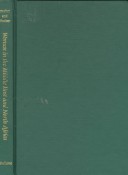Restoring Women to History
1 total work
Women in the Middle East and North Africa
by Guity Nashat and Judith E. Tucker
Published 22 June 1999
Tracing the evolution of the role of women beginning with ancient Middle Eastern societies through the seventeenth century, Guity Nashat employs a rational choice theoretical framework to examine the interplay between local practices and early Islamic beliefs and institutions. She further examines the expansion of Islam throughout the area and the subsequent development of the foundations of Islamic law and practice with regard to women. Judith E. Tucker surveys women and gender issues in the nineteenth and twentieth century Middle East with a particular focus on economic activity, access to political power, and contributions to cultural life. This essay also addresses the role that Islam and indigenous custom are thought to play in shaping women's lives.
